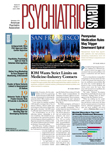Severe hypoglycemic events are a significant risk factor for developing dementia in older patients with type 2 diabetes, according to an epidemiological study from Kaiser Permanente published in the April 15 Journal of the American Medical Association.
For patients with type 2 diabetes, having had at least one episode of hypoglycemia severe enough for hospitalization or an emergency department visit was associated with a 50 percent increase in the risk of being diagnosed with dementia in the next few years.
The risk of dementia appeared to rise with the number of severe hypoglycemic events documented in the past. Using patients with no hypoglycemic events as reference, the risk of dementia was 25 percent higher for patients who had had one hypoglycemic episode, 80 percent higher for those with two episodes, and 94 percent for those with three or more episodes. All the risk ratios were statistically significant after adjusting for age and other potential confounding factors.
Rachel Whitmer, Ph.D., an investigator at the Division of Research at Kaiser Permanente Northern California (KPNC), and colleagues collected medical data on 16,667 type 2 diabetic patients in the KPNC Diabetes Registry who were aged 55 or older in January 2003 and had not been diagnosed with dementia, mild cognitive impairment, or general memory complaints at the time. The risk of getting dementia was analyzed for potential correlation with records of hypoglycemia-related hospitalizations and emergency department visits from 1980 and 2002. Approximately 1 in 10 of the diabetic patients was later diagnosed for dementia of any type, including Alzheimer's disease and vascular dementia, in the follow-up years from 2003 through January 2007.
The increased risk of developing dementia was also significantly predicted by emergency department admissions related to hypoglycemia. Patients who had had two or more emergency department admissions before 2003 had more than double the risk of being diagnosed with dementia after 2003.
There has been evidence to suggest a link between diabetes and the development of dementia, but scientists are only beginning to explore the mechanisms of the connections between neurological disorders and metabolic abnormalities, including but not limited to diabetes, dyslipidemia, and obesity. The authors of the JAMA study speculated that, because severe hypoglycemia episodes can impair nutrient delivery to the brain and increase the amount of neurotoxic glutamate, some patients experiencing hypoglycemia might have subclinical but permanent neurological damage that subsequently exacerbated the risk of developing dementia.
A neuropathology study on brain tissue and autopsies published in the March Archives of Neurology suggested that dementia patients with and without diabetes may have two patterns of cerebral injury that lead to dementia. Joshua Sonnen, M.D., and colleagues at the University of Washington and Oregon Health and Sciences University found that the cerebral cortex of dementia patients without diabetes had more amyloid-beta peptide deposits and higher levels of F2-iso-prostanes, which are a molecular marker for neural injury caused by free radicals. In contrast, the brains of patients with diabetes and dementia showed more microvascular infarcts and elevated levels of interleukin-6, a chemical related to inflammation.
An abstract of “Hypoglycemic Episodes and Risk of Dementia in Older Patients With Type 2 Diabetes Mellitus” is posted at<jama.ama-assn.org/cgi/content/abstract/301/15/1565>.▪
